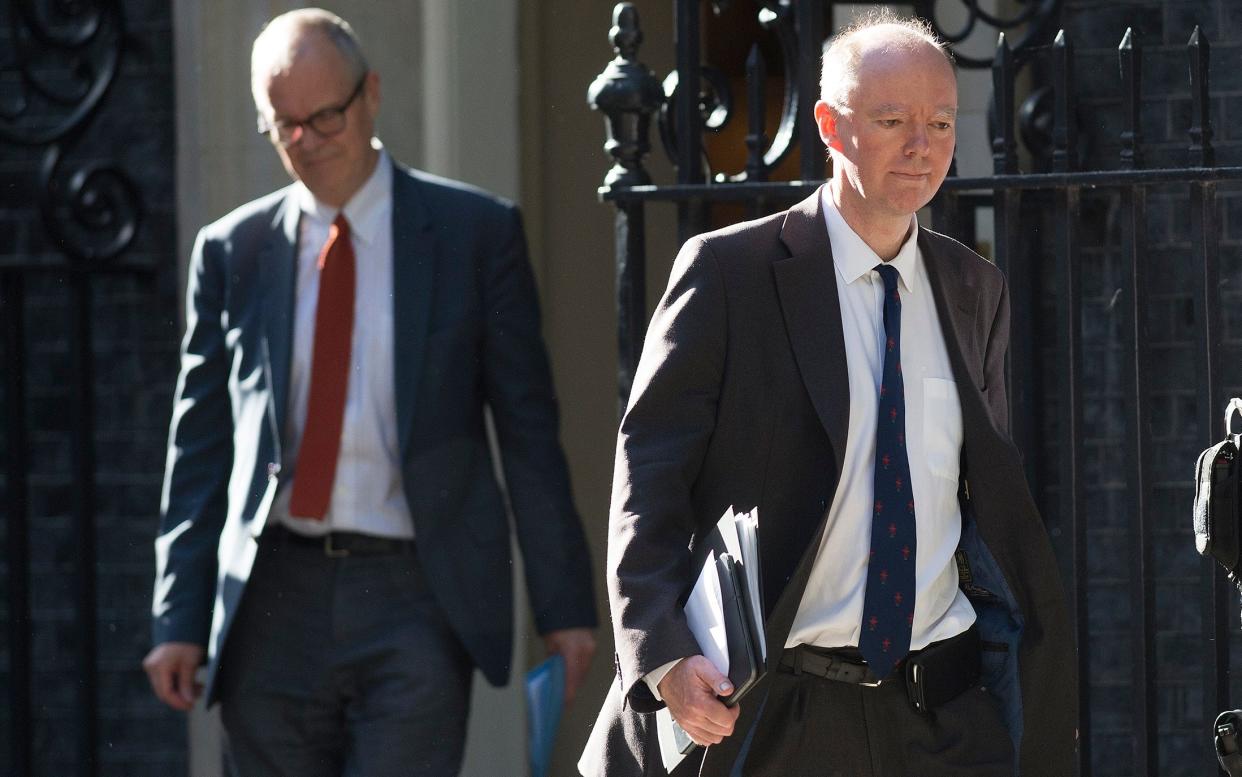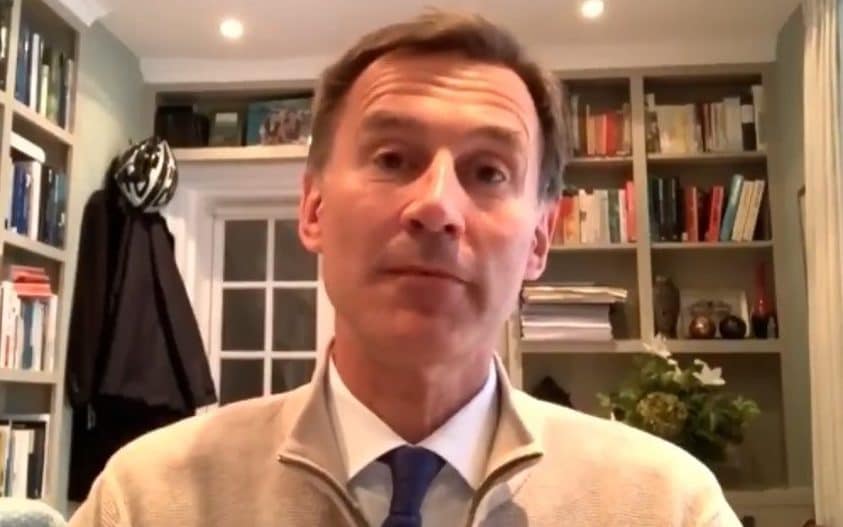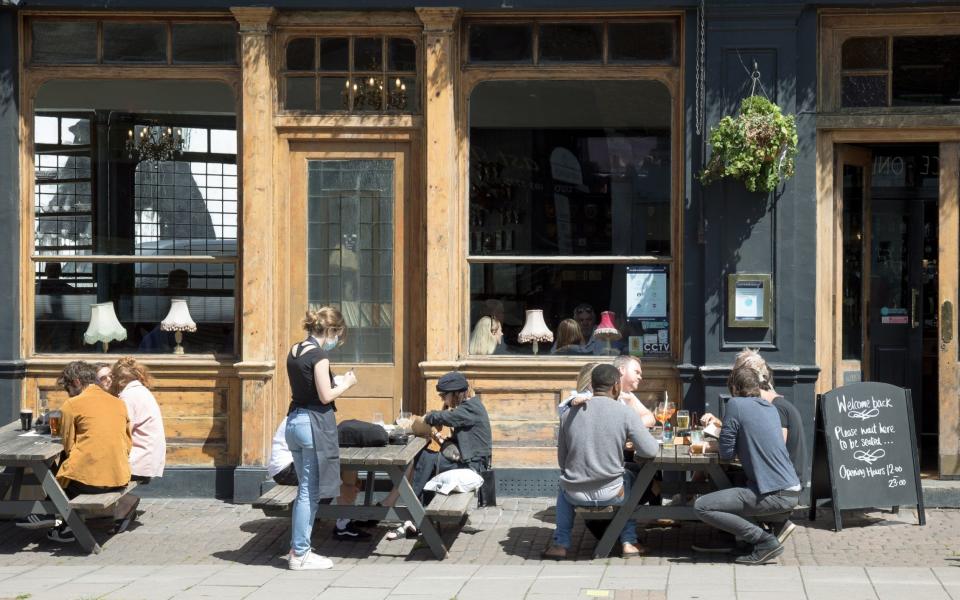Sage sidelined as Government takes direct control of coronavirus response


The Government's Scientific Advisory Group for Emergencies (Sage) appears to have been sidelined as ministers take more direct control of the response to coronavirus.
Instead, an expanded Joint Biosecurity Centre will take a more prominent role in co-ordinating the Covid-19 response.
Last month, Downing Street appointed a senior spy to lead the unit to monitor the spread of coronavirus, advise ministers on the alert level for the virus and recommend actions to suppress new outbreaks.
Now it has emerged that Sage – the committee led by the chief scientific adviser, Sir Patrick Vallance, and the chief medical officer, Professor Chris Whitty – is to meet less often, with its sub-groups asked to provide advice directly to the Government.
Scientists expressed concern about the shift, saying the work of the new unit was "shrouded in mystery".
A member of one of Sage's sub-committees, speaking on condition of anonymity, told The Telegraph it had been "mentioned in passing that they would now report directly to ministers".

They were told by officials that they had been "doing a lot of work", and they were reducing their sitting hours in order to reduce the burden. Scientists in one group were surprised to be told that they would not be meeting at all during August despite the ongoing pandemic.
The source questioned what the purpose of Sage would be if the committee no longer had access to evidence from sub-groups which they considered before reporting to the Government.
Sage said the working groups would provide advice directly to Government departments and "support them more directly", but would not directly report to ministers. Sage meetings have already been reduced from twice to once a week, and in future will occur whenever deemed necessary, sources said.
Professor Susan Michie, who sits on both the behavioural science subcommittee, SPI-B, and on Sage, criticised a lack of transparency over the moves, saying the work of the Joint Biosecurity Centre was "shrouded in secrecy".
"In order to get trust, it is really important that there is openness, transparency and explanation of the basis on which advice is given," she told The Telegraph. "We know little about this new body and who is on it.
"Who are the scientists? What are the criteria used for selecting them? What is the governance and accountability?
"There are scientists on Sage who work for universities and are independent, but the new body appears to be a Government command and control operation."
Prof Michie, a professor of health psychology and director of the Centre for Behaviour Change at UCL, added: "I think that this is circumventing Sage.
"There has been no explanation as to why there is a change in the system – it appears to have been set up without transparency or an explanation of the rationale."
Sage had itself been widely criticised for lack of transparency at the start of the crisis, and it took months before the membership of the committee was revealed.
However, the scientific advice behind the Government's strategy has repeatedly come under scrutiny, with concern that it has left Britain too slow in its response and late to adopt policies such as the use of face coverings.

On Wednesday, former Health Secretary Jeremy Hunt said Sage had given ministers the wrong advice at the start of the crisis by failing to propose a test and trace strategy.
Professor Robert Dingwall, a member of the Government's New and Emerging Respiratory Virus Threats Advisory Group (Nervtag), which advises Sage, said "experience has shown that the present structures are not ideal, although I am not sure that the Joint Biosecurity Centre is the right way to go".
He expressed concern that there was little public information about the staffing and working of the new unit, calling for a commitment to transparency in its advice and reports.
A Sage member who sits on the SPI-M sub-group said: "We need to remember that there was a lot of criticism in March and April about the anonymity of Sage.
"It seems like we're back there – no one really knows who is on JBC [Joint Biosecurity Centre], and so we're now in a situation where we're not quite clear of the expertise of people on JBC, who are now taking responsibility for advising the Government going forward."
A senior Government source said the changes had been implemented because the nature of the UK's response to the pandemic was changing.
The source said that while Sage, which is primarily focused on dealing with emerging threats, had played an integral role at the onset of the pandemic, much of the Government's decision-making was now based on how to manage exiting the lockdown.

This meant ministers were increasingly concerned with the testing data being collected by the Joint Biosecurity Centre, which is used to identify and monitor local outbreaks.
However, the source said Sage would still play an important role in analysing the risks of a second wave of coronavirus and providing advice on winter preparedness.
A spokesman for Sage said: "Sage will continue to provide a single consensus view of scientific advice at the heart of Government decision-making, to inform the national strategic response to the coronavirus epidemic.
"As we move into the next phase of the coronavirus response, the JBC will complement the work of Sage, providing more operational focus including data analysis and epidemiological expertise, with the aim of ensuring that outbreaks of coronavirus are detected and brought under control quickly."
The committee recommended the creation of the Joint Biosecurity Centre, which was formed in May to help the UK's chief medical officers set the threat levels in each of the four nations.
Last month, Clare Gardiner, the head of cyber resilience and strategy at the National Cyber Security Centre, part of intelligence agency GCHQ, became the centre's first director-general, responsible for advising ministers on the alert level for the virus.

 Yahoo News
Yahoo News 
